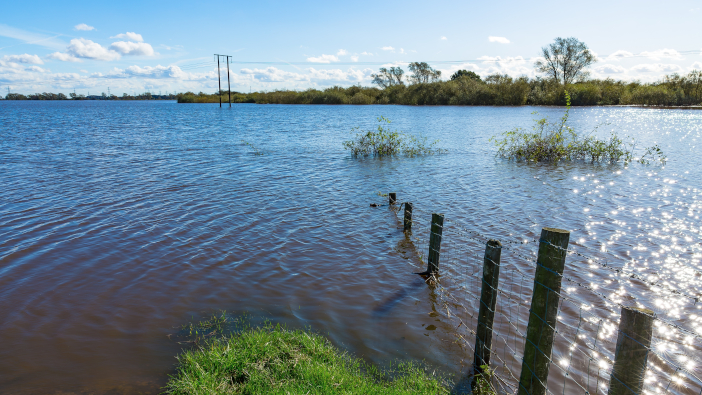The devastating flooding caused by Storm Babet earlier this month has left farmland under water and farmers’ livelihoods at risk. In light of this, the NFU has called for all political parties to take action and set out plans to protect both the farmland, and the country’s food security.
The campaign is an open letter which calls on the Environment Agency to deliver a proactive plan for the watercourses and flood defences it manages, as well as for the government to pay farmers and growers fairly for the role they play in protecting homes and businesses when rivers breach their banks.
Additionally, the NFU is calling for changes to the Flood Defence Grant in Aid cost-benefit analysis to ensure that rural communities are not disadvantaged by the nature of smaller populations in comparison to urban communities.
NFU deputy president, Tom Bradshaw, said: “I have been out to meet NFU members and have seen first-hand the destruction and financial stress caused by flooding to farmers’ businesses and their homes. Despite promises made during each catastrophic flooding event, repeated governments of all parties have failed to get to grips with the challenge of managing watercourses and flooding. With another storm forecast this week, we need to see plans come forward as a matter of urgency.
“As farmers, we have all experienced the impact of more and more extreme weather and with climate change this is something we will continue to see more of. While the flood water might be receding in some areas, I want to ensure our members start to see action now.
“There are tangible things that can be done now to adapt. For example, maintaining existing flood defences and paying farmers for the public good they provide by holding floodwater on their land. All political parties must recognise that for these long-term plans to succeed, action is required urgently.
“I would encourage all farmers, whether impacted by flooding or not, to sign the NFU’s open letter; one that is asking political parties to stand up and listen to those working on the frontline of climate change. They must deliver solutions for the future to ensure we can continue producing food while protecting our farmland and local communities.”


